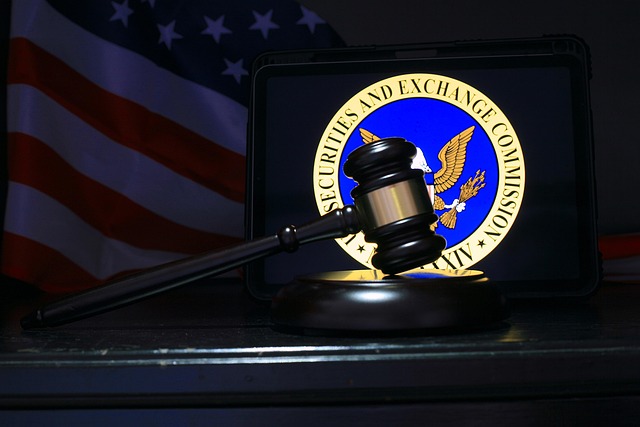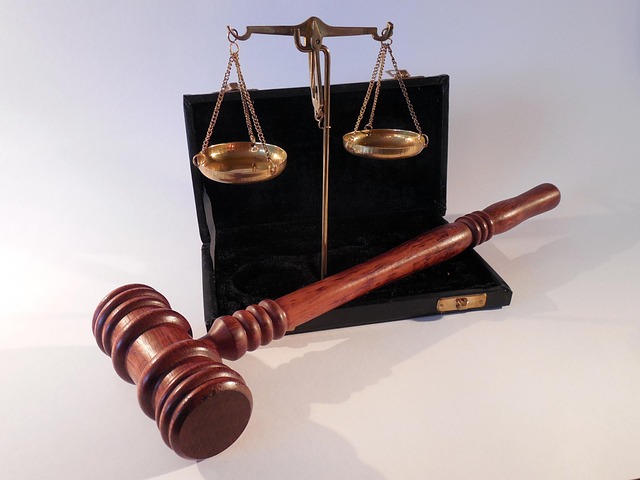Environmental Crime Trials are a specialized legal domain focusing on environmental protection, where defense against Intellectual Property (IP) claims is a key strategy for companies accused of ecological misconduct. These trials require attorneys to balance justice with intricate environmental and IP laws, protecting client rights while navigating complex issues like proprietary technology defenses. Through strategic planning, thorough investigation, and meticulous record-keeping, specialized attorneys defend against IP claims, ensuring fair trials and mitigating risks in high-profile cases like United States v. BP (2012) and State of California v. Volkswagen (2017).
“Uncover the intricacies of environmental crime trials, where legal battles focus on holding perpetrators accountable for eco-destruction. This article explores a unique intersection of law and ecology through ‘Understanding Environmental Crime Trials’ and its implications. We delve into the role of intellectual property (IP) in these cases, uncovering how it can be both a weapon and a shield. Common challenges and strategic defenses against IP claims are dissected, offering insights from notable trials. By examining real-world scenarios, we equip readers with knowledge to navigate this complex domain.”
- Understanding Environmental Crime Trials: A Legal Perspective
- Intellectual Property and Its Role in Environmental Cases
- Common Challenges Faced During Proceedings
- Strategies for Defending Against IP Claims in Environmental Lawsuits
- Case Studies: Notable Environmental Crime Trials and Their Outcomes
Understanding Environmental Crime Trials: A Legal Perspective

Environmental Crime Trials present a unique legal landscape where the focus shifts from traditional criminal offenses to the protection and preservation of our planet. These trials are not merely about punishment but also about deterring future harm to the environment. From a legal perspective, understanding these cases requires a deep dive into environmental laws and their intricate web of regulations. Every act, whether it’s pollution or habitat destruction, is scrutinized through a lens that considers both immediate impacts and long-term ecological consequences.
Defending Against Intellectual Property Claims plays a significant role in these trials as corporate and individual clients face charges related to environmental misconduct. White collar defense attorneys are instrumental in navigating these complex cases, ensuring their clients’ rights are protected while also holding them accountable for their actions. The strategy involves meticulous examination of evidence, understanding regulatory frameworks, and crafting legal arguments that balance the need for justice with the complexities of environmental law.
Intellectual Property and Its Role in Environmental Cases

In environmental crime trials, intellectual property (IP) plays a unique and often complex role. While IP laws are primarily designed to protect innovations and creative works, their application in environmental cases can be instrumental in both defending against claims and enforcing regulations. For instance, companies accused of environmental crimes might rely on IP protections to defend against allegations, especially when the dispute involves proprietary technologies or formulas used in their operations. By asserting intellectual property rights, businesses can shield themselves from liability, particularly during jury trials, where the onus is on proving intent and damages.
Understanding and navigating these legal complexities are crucial for avoiding indictment at all stages of the investigative and enforcement process. Prosecutors must carefully consider IP laws when building cases, ensuring that evidence and arguments do not inadvertently infringe upon protected intellectual property. This balanced approach ensures that environmental justice is served while respecting the rights of businesses operating within legally defined boundaries.
Common Challenges Faced During Proceedings

Environmental Crime Trials face unique challenges that can complicate proceedings. One significant hurdle is Defending Against Intellectual Property Claims, which often arise when sensitive data or proprietary information related to environmental violations is discovered. Accused parties must navigate complex legal territory to protect their intellectual assets while addressing the core environmental issues. This requires meticulous strategic planning and a deep understanding of both environmental regulations and intellectual property laws.
Moreover, these trials frequently involve intricate scientific evidence and expert witness testimony, demanding high levels of precision and accuracy. Across the country, attorneys specializing in these cases have achieved extraordinary results for their clients by meticulously building defenses that not only challenge the admissibility of harmful evidence but also ensure a fair trial process. This involves meticulous document review, thorough fact investigation, and strategic cross-examination to expose weaknesses in prosecution claims.
Strategies for Defending Against IP Claims in Environmental Lawsuits

In environmental crime trials, Defending Against Intellectual Property (IP) Claims presents unique challenges for companies and individuals facing litigation. A robust strategy is essential to navigate these complex cases effectively. One key approach involves a thorough examination of the IP at the heart of the dispute. Understanding the nature and origins of the intellectual property is crucial; this includes identifying whether it has been properly licensed, assigned, or transferred, ensuring compliance with legal formalities. By scrutinizing these aspects, defendants can build a solid defense against allegations of misuse or unauthorized replication.
Additionally, focusing on due diligence and record-keeping practices can be beneficial in avoiding indictment. Maintaining comprehensive documentation related to IP development, implementation, and dissemination across the country helps demonstrate a commitment to ethical standards. Engaging with philanthropic and political communities through transparent processes can also mitigate risks. These communities often play a vigilant role in environmental matters, and their support can be instrumental in discrediting baseless IP claims, thereby strengthening the defense strategy.
Case Studies: Notable Environmental Crime Trials and Their Outcomes

Environmental Crime Trials have been pivotal in holding perpetrators accountable and shaping corporate conduct. Notable cases like United States v. BP (2012), which resulted in a record-breaking $4.5 billion fine for the Deepwater Horizon oil spill, send a strong message about the severity of environmental transgressions. These high-stakes cases not only involve massive financial penalties but also scrutinize corporate governance and individual responsibility, defending against intellectual property claims in the process.
From People v. ExxonMobil (2016) to State of California v. Volkswagen (2017), these trials have spanned all stages of the investigative and enforcement process, demonstrating the complexity and far-reaching implications of environmental crimes. The outcomes have significantly impacted corporate strategies, fostering a culture of greater transparency and accountability among both multinational corporations and individual defendants, including executives. This evolution underscores the necessity of robust legal frameworks in defending against intellectual property claims while ensuring justice is served for environmental violations affecting communities worldwide.
Environmental crime trials pose unique challenges, particularly when intellectual property (IP) is involved. As these cases navigate complex legal territories, understanding both the intricacies of environmental law and the role of IP is paramount. By recognizing common challenges and employing strategic defenses, such as robust IP management and compliance, individuals and organizations can better navigate these proceedings. The case studies presented offer valuable insights into how various outcomes have shaped the landscape of environmental justice, underscoring the importance of proactive measures to defend against IP claims in these high-stakes battles for our planet’s future.






